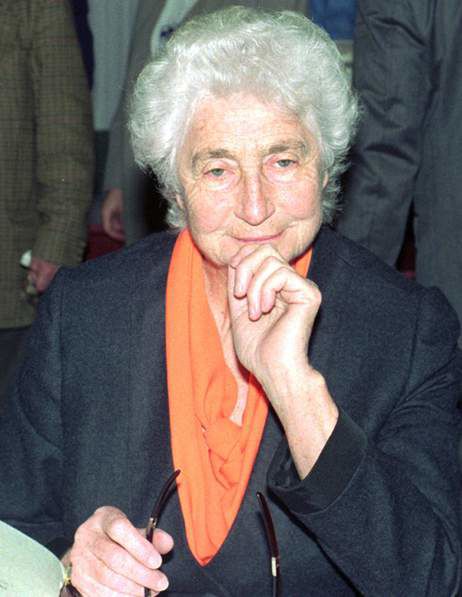Susanna Agnelli, Italy’s first female foreign minister
Published 5:00 am Monday, May 18, 2009

- Susanna Agnelli, the granddaughter of Fiat founder Giovanni Agnelli, got her start in politics in the 1970s and served as foreign minister in 1995 and 1996.
ROME — Susanna Agnelli, a scion of the Fiat car dynasty, the only female foreign minister in Italian history and a formidable presence who brought American-style philanthropy to Italy, died Friday in Rome. She was 87.
She died at Rome’s Gemelli Clinic from complications after a broken hip, said her daughter Priscilla Rattazzi Whittle of New York.
Susanna, or “Suni,” as she was known, was the granddaughter of Giovanni Agnelli, who founded Fiat. Both the carmaker and the Agnelli family, Italy’s answer to the Kennedys, came to epitomize Italian glamour and innovation during the economic boom that followed World War II.
Agnelli was a confidante of her dashing brother, Giovanni Agnelli, known as Gianni, who served as Fiat chairman for 30 years. After Gianni’s death in 2003, Agnelli successfully rallied her siblings to keep Fiat in the family.
Now led by Gianni’s grandson, the company recently acquired a stake in Chrysler.
A striking woman who let her hair go gray, spoke her mind and dressed smartly in pantsuits, Agnelli was the antithesis of the showy television celebrities who dominate Italian culture today.
Agnelli started a career in politics in the 1970s, when she became mayor of Monte Argentario, a village on the Tuscan coast where the family had a home.
She soon broadened her ambitions, serving as a member of Parliament from the center-left Republican Party and later as a member of the European Parliament. In 1983 she was named undersecretary of state for foreign affairs, a post she held until the early 1990s.
In 1995 and 1996 Agnelli served as foreign minister in the centrist government of Lamberto Dini.
“She was the most efficient person that I ever met,” Mario d’Urso, a family friend, said Saturday. “She was able to obtain whatever she wanted, much more than Gianni.”
Agnelli’s son Lupo Rattazzi, reached Saturday, said affectionately, “My mother was a pretty bossy character.” She was active in environmental causes, and she helped bring an American-style televised fund-raiser to Italy that still raises millions of dollars annually for medical research.
In her best-selling 1975 memoir, “We Always Wore Sailor Suits,” Agnelli recalled her childhood in Turin, where, under the tutelage of an English nanny, she and her six siblings were taught, “Don’t forget that you are an Agnelli.”
Until several years ago, Agnelli wrote a weekly advice column for the magazine Oggi.
Born April 24, 1922, Susanna Agnelli came of age during World War II. At 20, she left a convent school in London to work for the Red Cross, serving on ships carrying wounded soldiers. After the war, she married Count Urbano Rattazzi. The couple had six children. They divorced in 1971.
In the early 1970s, when the Red Brigades were threatening industrialists in Italy, Agnelli lived for a time in New York. Sunday brunches at her home on Park Avenue became legendary, bringing together a wide range of notables including Sen. Jacob Javits and Andy Warhol, according to d’Urso.
She kept a home in New York until her death. “She loved New York,” her daughter Priscilla recalled.
Agnelli is survived by her six children, as well as 14 grandchildren and 2 great-grandchildren.






